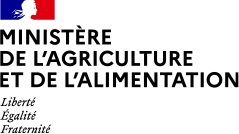Document type : Review published in the Bulletin de veille du Centre d'études et de prospective du Ministère de l'agriculture et de l'alimentation
Author: Nathalie Kakpo
Preview: Géraldine Aïdan, Danièle Bourcier (dir.), Humain Non-Humain. Repenser l'intériorité du sujet de droit, Éditions LGDJ, 2021, 224 pages
How can we explain the increasing number of legal decisions in recent years that allow animals, rivers and streams the status of legal subjects? What are the characteristics associated with this status in positive law and in legal science? This book provides answers to these questions, which are creating waves in the worlds of agricultural, forestry and fisheries by bringing together law, life sciences and artificial intelligence.
G. Aïdan sets out the concept on which the book is based: it is because legal systems ascribe "interiority" (a set of properties relating to the psyche) to non-human entities that they become the subjects of legal rights. This introductory section is founded on the "mechanism of representation", according to which a non-human entity, which cannot be subject to legal norms because it has no cognitive capacities, has legal rights conferred on it through a human who then becomes the subject of imputation. […]
The second part, which is of more direct interest to us, concentrates on the results of recent work challenging current normative formulations and is likely to further broaden the range of entities that can be legal subjects. M. Giurfa (a neuroethologist) uses research that provides in vivo imagery of brain activity in bees to demonstrate thatbees have cognitive capacity and a form of consciousness.According to B. Moulia, a biologist and physicist, plants are capable of perceiving various environmental signals and of responding by movement, being more than a simple reflex response associated with a single stimulus. This sensorimotricity, which until recently was considered an intangible boundary distinguishing the mobile animal from the passive plant, could mean that "plants reappear on the scale of the living" and require a new legal recognition.




